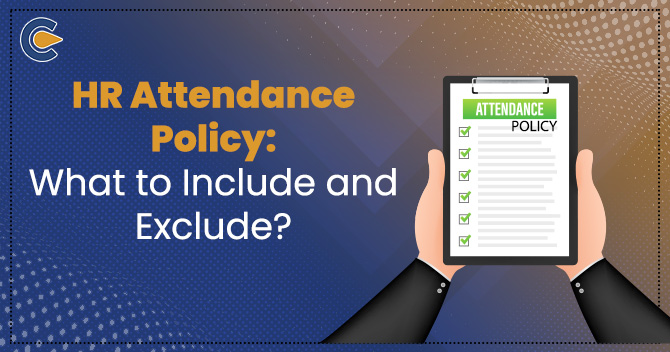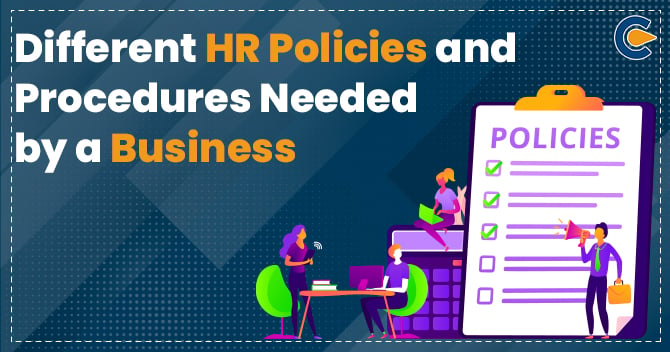HR Attendance policy template is necessary for an organisation when the employee’s frequent absence & tardiness is causing a disturbance in the Company. With the enlarged Company to deal with employees issues, a time & attendance policy is needed. In case you run a small business, you may feel that an attendance policy is unnecessary. Your employees are aware of their responsibilities, and everything has run smoothly, but as your business grows, a set attendance policy becomes increasingly important. It becomes necessary for keeping your business successful.
An Overview of Attendance Policy
Regular and punctual attendance is a vital responsibility of every employee at the Company. An employee is expected to report to work as scheduled, on time & prepared to start working. Employees are expected to remain at their jobs for their entire work schedule. Late arrival and early departure or other absences by scheduled hours are disruptive & need to be avoided.
The objective of the HR Attendance Policy
- The aim of the attendance policy is to encourage attendance and to monitor employees regarding their punctuality.
- The objective of the attendance policy is to reduce absenteeism[1] in the workplace, thereby implementing & enforce an attendance policy.
What is Good Attendance?
The employees with less than four incidents of tardiness or absenteeism in a year are an example of an employee with good attendance. An employee will receive an additional paid day for the following year. Employees have a good attendance record based on the following:
- Consistently reporting to the job.
- Leaving a job at the scheduled shift end time.
- Take breaks or lunch that do not require more than the expected length.
- Arriving at the job at the scheduled shift start time.
- Remaining at the position during working hours.
- Notifying their manager when they need to be late or absent.
- Being late or absent for good reasons only.
Importance of HR Attendance Policy
Following are the importance of the HR Attendance Policy:
- It makes employees more punctual & regular.
- Increases employee reputation for dependability.
- Increase productivity.
- Reduces absenteeism.
- Better use of the skilled employees as the most qualified employees is of less use in case they are not present regularly.
- Helps management to take worker-related decisions.
- Important attendance issues can be identified.
- Poor attendance puts a responsible manager and co-worker under pressure, as they must carry out the job of others besides their career.
- The attendance policy ensures that employees are paid in full & on time.
- Good attendance helps you in getting a good position.
- It helps in deciding on how attendance can be improved.
- A good attendance record increases morale.
- Incentivising rewards along with a good attendance record.
Essential Points of an Effective Attendance Policy
Following are some key points of an effective attendance policy:
- Examine Your Company Culture: If you do not have an attendance policy, examine your company culture and talk to your managers to find out how they deal with tardiness & absenteeism.
- Set up a method for tracking attendance: The simple way to track attendance is using your employees’ time cards.
- Define absence and tardiness: It is essential for the success of your attendance policy to specifically explain what an absence is & what it means to be tardy. Without these definitions, employees can claim they did not know.
- Set up a Method for Tracking Attendance: this is a straightforward method for tracking attendance using your employee time cards.
- Create a list of approved absences and documents required: You should consider medically related as an approved absence as long as your employees get permission beforehand or notify you within a reasonable time.
- Please keep it simple: Resist the urge to cover all situations in HR Attendance Policy. Instead, stick to common principles, explain your expectations, and use language that everyone can understand.
- Clarify the Difference between Unexcused absences and Approved absences: Your employees are clear on when they may violate the attendance policy.
- Include Realistic Disciplinary Action against Unexcused Absences: The attendance policy should cover the consequences of an unexcused absence. Do not go overboard in the hopes that you will deter further absences. Losing an entire day’s pay is not commensurate with being 15 minutes late.
Disciplinary Actions
In case of a manager suspects that an employee is misusing their sick leave, said employee might submit doctor’s notes to avoid a progressive discipline process. If the employee is found to be unintentionally tardy, then corrective counselling will be the first step to finding a solution. Here is some disciplinary action that goes up to & including termination if:
- Corrective counselling does not work.
- Your absenteeism or tardiness directly influences your work.
- You are wilfully tardy.
Note: Unreported & Unexcused absences are not considered as hours worked. Therefore, we will not compensate them.
Conclusion
This completes our overview of the HR Attendance Policy. The reasons for absent-minded behaviour are numerous, and its effects are multiple. High absenteeism virtually never occurs in isolation, which is crucial. The belief among employees that management is ignoring them, a toxic company culture, poor management, or other circumstances are frequently additional contributing causes.
Read our Article:Different HR Policies and Procedures Needed by a Business










